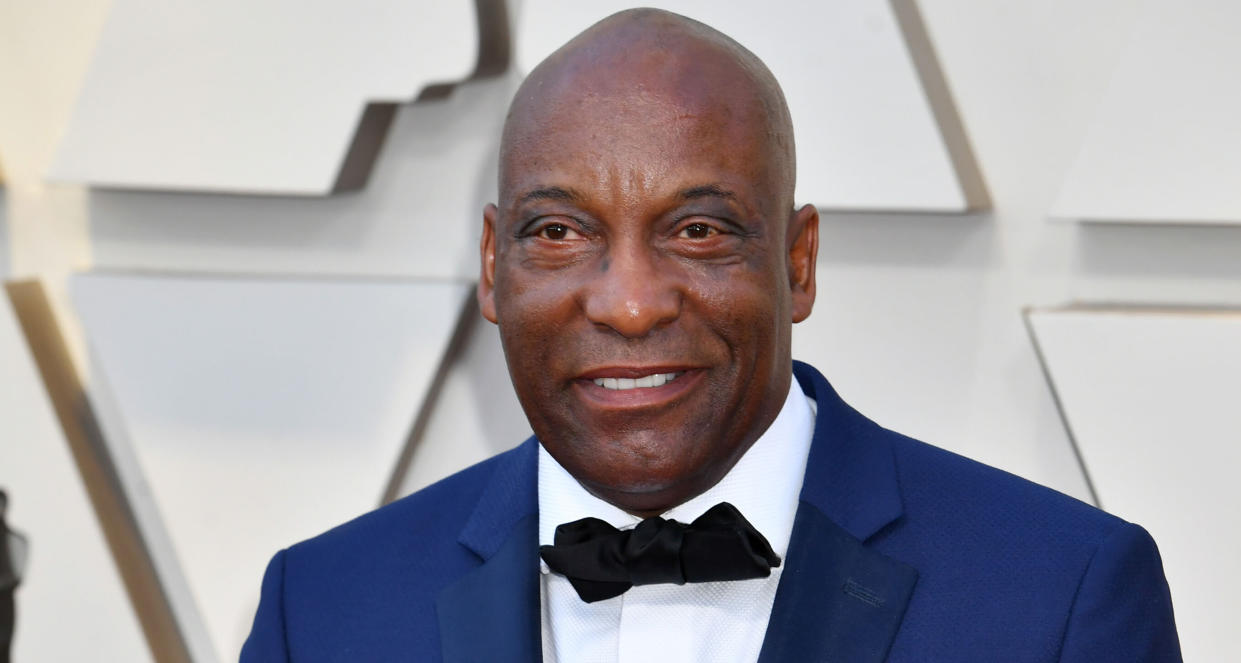John Singleton dies after suffering stroke: What you need to know about detection

Acclaimed director John Singleton has died following complications from a stroke.
According to a family representative, the 51-year-old “Boys N the Hood” visionary passed away Monday after being taken off life support.
"We are sad to relay that John Singleton has died. John passed away peacefully, surrounded by his family and friends," Singleton’s family shared in a statement. "We want to thank the amazing doctors at Cedars-Sinai Hospital for their expert care and kindness and we again want thank all of John's fans, friends and colleagues for all of the love and support they showed him during this difficult time."
ALSO SEE: Larry King is recovering from heart procedure, but ‘did not have a heart attack,’ says rep
On April 17, Singleton was taken to hospital and placed in intensive care after suffering a stroke.
News of Singleton’s passing marks the second high profile Hollywood death in recent months caused by complications due to stroke.
In March, 52-year-old actor Luke Perry of “90210” fame died due to similar complications after a stroke, something experts say is “quite common” for someone in their early 50s.

Each year, approximately 140,000 people in the United States die from suffering a stroke in the United States, making it the fifth leading cause of death for Americans.
According to the Centre for Disease Control and Prevention (CDC), strokes occur when blood supply to the brain becomes blocked by either a clot (ischemic stroke) or when blood vessels in the brain burst (hemorrhagic stroke).
People can also suffer a transient ischemic attack (TIA) or “mini strokes,” often known as “brain attacks.” These short blockages of blood flow to the brain typically last for no more than five minutes, but are a warning sign of future strokes.
ALSO SEE: More young people are dying from the flu — here's what you need to know
The lack of blood flow and oxygen to the brain during a stroke can result in permanent disability or death, making it critical to detect and treat as soon as possible.
What are the major symptoms of a stroke?
The American Stroke Association advises people to remember the acronym F.A.S.T:
F- Facial drooping or numbness. If a person experiences facial weakness or numbing, it can be detected by asking the person to smile and looking for any unevenness.

A- Arm weakness or numbness. A person suffering a stroke may feel a general sense of weakness or numbness in the arms. Ask the person to raise both of their arms, to spot any differences.
S- Slurred speech. During a stroke, a person may slur their speech or find it difficult to speak. Words can sound like gibberish or speech may be slowed. Ask a person to repeat a sentence several times and call for medical treatment, even if their speech suddenly returns to normal.
T- Time to call 911. Call for medical attention immediately if a person experiences one or several of the major stroke symptoms.
Other minor stroke symptoms
Aside from the F.A.S.T symptoms, a person having a stroke may experience sudden vision problems, have difficulty walking or understanding conversations. Severe headache, dizziness, loss of balance or coordination are all signs that a person may be having a stroke, and should receive medical attention immediately.

Who is at risk?
While they can occur to anyone at any age, there are several factors that can increase a persons risk for having a stroke. People who smoke or drink alcohol, live sedentary lifestyles, have high cholesterol, blood pressure or diabetes are all at a greater risk of suffering a stroke.
Maintaining a healthy weight and remaining physically active can help prevent your chances of having a stroke.
Let us know what you think by commenting below and tweeting @YahooStyleCA!Follow us on Twitter and Instagram.
Check out Yahoo Canada’s podcast, Make It Reign — our hot takes on all things royals in a non-stuffy way — on Apple Podcasts and Google Podcasts.



